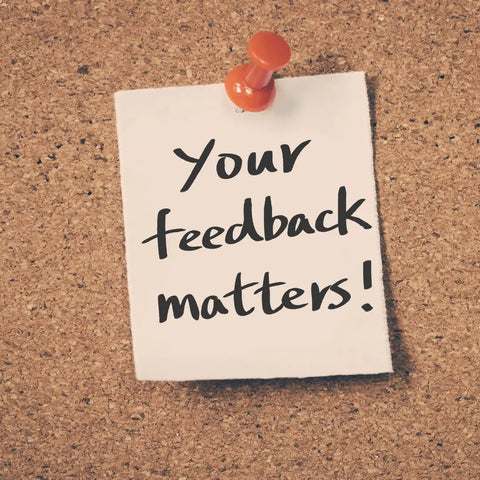Employee culture plays a vital role in the success of any organization. It not only shapes the overall employee experience but also has a significant impact on business outcomes such as productivity, retention, and satisfaction. As a result, HR professionals play a crucial role in nurturing and enhancing company culture. In this article, we will explore why employee culture is beneficial for HR and how HR can effectively contribute to building a strong culture within an organization.
What is Employee Culture?
Employee culture can be defined as the shared set of values, attitudes, and behaviors that characterize how an organization operates both internally and externally. It reflects the written and unwritten rules that employees follow and encompasses various aspects such as company mission, values, communication style, leadership, performance management practices, and work environment.
The Importance of Employee Culture
A strong employee culture has numerous benefits for both employees and the organization as a whole. Here are some key reasons why employee culture is crucial:
1. Increased Employee Engagement and Productivity

Employee culture plays a critical role in fostering engagement and productivity. When employees feel connected to the company's mission, values, and goals, they are more likely to be motivated and committed to their work. Engaged employees are also more likely to go above and beyond and contribute to the overall success of the organization.
2. Higher Retention Rates
A positive and inclusive employee culture helps in retaining top talent. When employees feel a sense of belonging and are aligned with the company's values, they are more likely to stay with the organization long term. This reduces turnover rates and the associated costs of recruiting and training new employees.
3. Improved Employee Satisfaction

A strong employee culture contributes to higher levels of employee satisfaction. When employees feel valued, supported, and recognized for their contributions, they are more likely to have a positive view of their work and the organization. This leads to higher job satisfaction and overall well-being.
4. Enhanced Employer Branding
A positive employee culture can significantly impact an organization's employer branding. when employees have a great experience at work, they become brand ambassadors and share their positive experiences with others. this can attract top talent and improve the organization's reputation in the market.
5. Increased Innovation and Creativity

A culture that encourages innovation and creativity can lead to new ideas and solutions. When employees feel safe to express their opinions and take risks, they are more likely to contribute innovative ideas that drive business growth and success.
6. Better Customer Experience
Employee culture directly impacts the customer experience. When employees are happy, engaged, and aligned with the company's values, they are more likely to deliver exceptional customer service and create positive interactions with customers.
HR's Role in Building and Nurturing Employee Culture
HR professionals are in a unique position to shape and enhance employee culture within an organization. Here are some key ways in which HR can contribute to building a strong employee culture:
1. Define and Communicate Company Values

HR can work with leaders to define the company's mission, vision, and values, ensuring they are aligned with the overall business strategy. These values should be effectively communicated to all employees and serve as a foundation for the organization's culture.
2. Hire for Cultural Fit
HR plays a crucial role in the hiring process by identifying candidates who align with company's values and culture. By selecting candidates who are a good fit, HR can ensure that new employees will contribute positively to the existing culture and help maintain its integrity.
3. Foster Open Communication

HR can create channels for open and transparent communication within the organization. This can include regular town hall meetings, feedback sessions, and employee surveys to gather input and address any concerns or issues that may arise. By fostering open communication, HR can ensure that employees feel heard and valued.
4. Provide Development Opportunities
HR should prioritize employee development by providing learning and development opportunities that align with the organization's culture and values. This can include training programs, mentorship initiatives, and career development plans. By investing in employee growth, HR can reinforce the importance of continuous learning and improvement within the culture.
5. Recognize and Reward Behaviors that Align with the Culture
HR can implement recognition and reward programs that celebrate and reinforce behaviors that align with the company's culture. This can include regular performance evaluations, employee appreciation events, and rewards for outstanding contributions. By recognizing and rewarding desired behaviors, HR reinforces the importance of the culture and motivates employees to continue living the organization's values.
6. Lead by Example

HR professionals should lead by example and embody the organization's culture in their daily interactions and decision-making. By demonstrating the desired behaviors and values, HR sets a positive example for the rest of the organization and reinforces the importance of the culture.
7. Measure and Evaluate Culture
HR should regularly measure and evaluate the organization's culture to identify areas of strength and areas that need improvement. This can be done through employee surveys, focus groups, and other feedback mechanisms. By gathering data on the culture, HR can make data-driven decisions and take appropriate actions to enhance the culture over time.
8. Support Change and Adaptation
HR should be proactive in supporting and facilitating change and adaptation within the organization. As the business landscape evolves, HR can help ensure that the culture remains relevant and adaptable to new challenges and opportunities. This can involve updating policies, implementing new initiatives, and providing support and resources for employees during times of change.
Measuring Employee Culture
Measuring employee culture is essential to understand its impact and identify areas of improvement. HR professionals can use various methods to measure employee culture, including:
1. Employee Surveys

Employee surveys are a valuable tool for measuring employee culture. These surveys can include questions about employee engagement, satisfaction, alignment with company values, and perceptions of the overall culture. The data collected from these surveys can provide insights into the strengths and weaknesses of the culture and guide HR in making informed decisions.
2. Focus Groups
Focus groups allow HR to gather in-depth qualitative feedback from employees about their organization's culture. These sessions provide an opportunity for employees to share their thoughts, experiences, and suggestions for improving the culture. The insights gained from focus groups can help HR identify specific areas that needs attention and develop targeted interventions.
3. Exit Interviews
Exit interviews provide feedback from employees who are leaving the organization. By asking questions about their experience with the culture, HR can gain insights into any underlying issues or concerns that may be impacting retention and overall employee satisfaction. This feedback can inform future culture improvement initiatives.
4. Performance Metrics

HR can also use performance metrics to assess the impact of culture on business outcomes. This can include metrics such as employee turnover rates, productivity levels, customer satisfaction, and financial performance. By analyzing these metrics, HR can identify correlations between culture and performance and make data-driven decisions to improve the culture.
Conclusion
Employee culture is a crucial factor in driving organizational success. HR professionals have a significant role to play in building and nurturing a strong employee culture. By defining and communicating company values, hiring cultural fit, fostering open communication, providing development opportunities, recognizing and rewarding behaviors that align with the culture, leading by example, measuring and evaluating culture, and supporting change and adaptation, HR can contribute to creating a positive and engaging employee culture. By investing in employee culture, organizations can create a thriving work environment that attracts and retains top talent, drives performance and innovation, and ultimately leads to long-term success.

